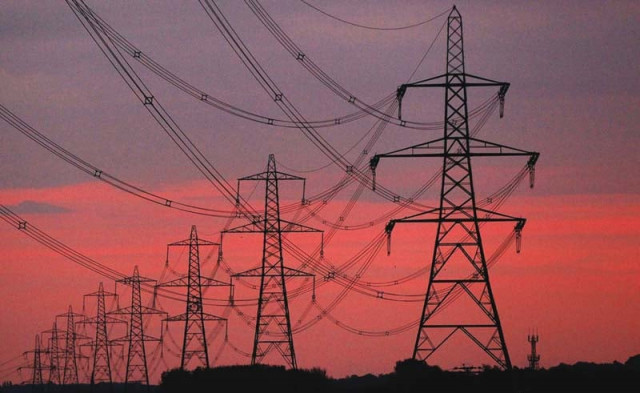K-E tells SHC its management not involved in sale of shares agreement
Agreement regarding sale of K-E shares being reached between Abraaj Group and Nepra, court told

K-E tells SHC its management not involved in sale of shares agreement
The additional attorney-general, Salman Talibuddin, disclosed this before a two-judge bench, comprising justices Nadeem Akhtar and Faheem Ahmed Siddiqui, in the hearing of petitions seeking judicial inquiry into overbilling of Rs62 billion by the K-E management and sale of its 66.4% shares to the Shanghai Electric Power Limited, a company incorporated under the law of China.
A group of non-profit organisations, including the Pakistan Institute of Labour Education Research (Piler), had approached the court seeking an inquiry into matters related to K-E through appointment of an independent judicial commission. Another such petition was filed by the Pak Sarzameen Party's Adil Siddiqui.
Senate panel says K-Electric minted billions of rupees
During proceedings on Tuesday, a lawyer representing the K-E informed the court that the utility's management was not party to the agreement regarding sale of 66.4% shares of the power utility to the Chinese company.
Meanwhile, the federal law officer, Salman Talibuddin, filed power of attorney on behalf of the Shanghai Electric Power Limited. He disclosed that the agreement regarding sale of the shares of the K-E was being reached between the Abraaj Group and Nepra.
After listening to the arguments, the bench granted time to the ministry of water and power, Nepra, Shanghai Electric Power Limited and others to file their comments on the petitions by May 17.
Case history
The petitioners, including Nazia Fida Hussain, Piler and Urban Resource Centre, had approached the court, alleging that the respondents, including the ministry of water and power and Nepra, had failed to investigate issues such as overbilling by the K-E management to the tune of Rs62 billion in a few years and unpaid dues of the K-E to various federal government entities.
China not to intervene in K-Electric deal: official
The petitioners informed the court that Nepra had failed to resolve the pending disputes before the transfer of the indirect shareholding and accounts of the K-E to the Shanghai Electric Company Limited.
The petitioners contended that the authorities had also failed to investigate the K-E's agreement to sell up to 66.4% of its shares to the Shanghai Electric Power Limited subject to the terms and conditions signed between the two parties, which had not been disclosed to the public.
To support their argument, the petitioner's lawyer, Faisal Siddiqui, on January 26, 2017, placed on record a letter issued by the ministry of water and power to Nepra advising it to take into consideration the matters highlighted in the letter while setting new tariff for the K-E by correcting anomalies in the tariff. The letter also asked Nepra to ensure the transfer of excessive payment recovered by the power company, back to the consumers.
Power trip: K-Electric to submit agreement signed with Chinese firm
Siddiqui informed the court that Nepra responded to the ministry's letter, in which it defended the K-E's new tariff and denied the allegations made against it.
The lawyer alleged that Nepra, being a regulatory authority, was not acting in a proper and prudent manner as it ought to have taken timely action against the K-E in order to save consumers from arbitrary and excessive billing.
The petitioners pleaded that the only solution was a proper inquiry into the dubious affairs of the K-E through the formation of an independent judicial commission headed by a serving superior court judge.


















COMMENTS
Comments are moderated and generally will be posted if they are on-topic and not abusive.
For more information, please see our Comments FAQ